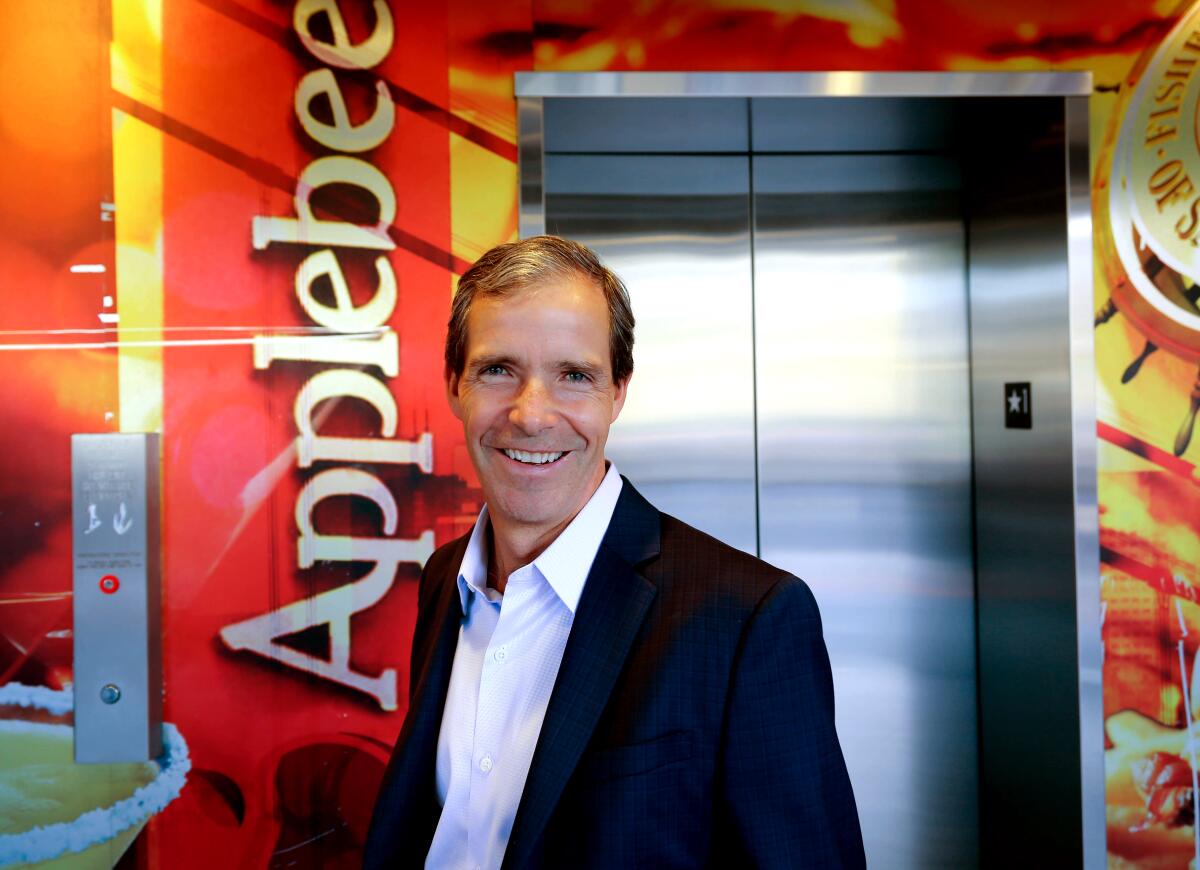Newsomâs office calls allegations about Panera Bread franchisee âabsurd,â says company is not exempt from law

Gov. Gavin Newsomâs spokesperson denied a Bloomberg News story that alleged the governor pushed to exempt bakeries from the stateâs fast food wage law to benefit a political donor who owns Panera Bread restaurants, calling the report âabsurd.â
The Bloomberg article published this week alleged that Greg Flynn, the billionaire chief executive of a restaurant group that operates Panera locations, lobbied Newsomâs top aides âto reconsider whether fast-casual chains such as Panera should be classified as fast food.â
The story alleged that the Service Employees International Union California State Council agreed to exclude restaurants that operate bakeries âas a means of winning the governorâs support for the legislation.â The article said âthe rationale was the governorâs longstanding relationship with a Panera franchisee.â
âThe governor never met with Flynn about this bill, and this story is absurd,â said Alex Stack, a spokesperson for Newsom. âOur legal team has reviewed, and it appears Panera is not exempt from the law.â
Bloomberg did not immediately respond to a request for comment in response to the statement from the governorâs office.
The governorâs office said that the legislation was the result of countless hours of negotiations over two years and that Newsom administration officials met with dozens of business owners as well as union representatives.
âThere was never an intent to exclude one company, but instead to provide clarity on what constitutes a fast food establishment,â Tia Orr, executive director of SEIU California, said in a statement.
Paneraâs inclusion in the law comes down to whether the company produces its bread on-site, or brings in dough made at a central facility, said a source involved in the discussions.
The law says bakeries are exempt from being required to pay the higher wages.
âThis exemption applies only where the establishment produces for sale bread as a stand-alone menu item, and does not apply if the bread is available for sale solely as part of another menu item,â the law states.
Under the law, the California labor commissioner will ultimately enforce compliance and could be responsible for making final determinations on which chains are exempt.
Flynn Holdings is a restaurant group and real estate investment company that claims to be the largest restaurant franchisee in the nation. The companyâs portfolio of restaurants includes more than 444 Applebeeâs restaurants, more than 280 Taco Bell locations, 133 Panera Bread cafes, 367 Arbyâs restaurants, 937 Pizza Huts and and 194 Wendyâs restaurants, according to its website.
Flynn has been a generous donor to Newsomâs political campaigns, including contributing $100,000 to fight a failed recall effort against the governor. Bloomberg reported that the two men attended the same high school. Flynn also acquired a resort managed by Newsomâs hospitality business in 2014, but terminated the management contract about a year after the purchase, according to the news outlet.
The statement from Newsomâs team denying the story comes after California Senate Republican Leader Brian Jones called for an investigation into the allegations Thursday.
âPut simply, campaign contributions should not buy you carve-outs in legislation,â Jones said. âThatâs crony capitalism. Itâs corrupt and unacceptable.â
Labor unions successfully pushed Assembly Bill 257, also known as the Fast Food Accountability and Standards Recovery Act, through the Legislature in 2022. At the time, bakeries were exempted from the law as unions, the governorâs office and other groups sought to define what restaurants the bill applied to.
The fast-food law, which Newsom signed last September, created a statewide 10-member fast-food council and regional councils composed of labor and employer representatives to set minimum wage, employee hours and working condition standards in California. Under the law, the council could have increased the minimum wage up to $22 an hour in 2024 for employees of chains with more than 100 restaurants.
Fast-food companies quickly launched a successful campaign to qualify a referendum on the ballot to reverse AB 257, which had paused the law from taking effect. .
Under a new agreement reached between fast-food companies and labor last year, the referendum will be removed from the November ballot and workers will receive a pay bump to $20 per hour beginning in April. Bakeries remain exempt from the law.
More to Read
Sign up for Essential California
The most important California stories and recommendations in your inbox every morning.
You may occasionally receive promotional content from the Los Angeles Times.







![[20060326 (LA/A20) -- STATING THE CASE: Marchers organized by unions, religious organizations and immigrants rights groups carry signs and chant in downtown L.A. "People are really upset that all the work they do, everything that they give to this nation, is ignored," said Angelica Salas of the Coalition of Humane Immigrant Rights. -- PHOTOGRAPHER: Photographs by Gina Ferazzi The Los Angeles Times] *** [Ferazzi, Gina -- - 109170.ME.0325.rights.12.GMF- Gina Ferazzi/Los Angeles Times - Thousands of protesters march to city hall in downtown Los Angeles Saturday, March 25, 2006. They are protesting against House-passed HR 4437, an anti-immigration bill that opponents say will criminalize millions of immigrant families and anyone who comes into contact with them.]](https://ca-times.brightspotcdn.com/dims4/default/34f403d/2147483647/strip/true/crop/1983x1322+109+0/resize/840x560!/quality/75/?url=https%3A%2F%2Fcalifornia-times-brightspot.s3.amazonaws.com%2Fzbk%2Fdamlat_images%2FLA%2FLA_PHOTO_ARCHIVE%2FSDOCS%2854%29%2Fkx3lslnc.JPG)



